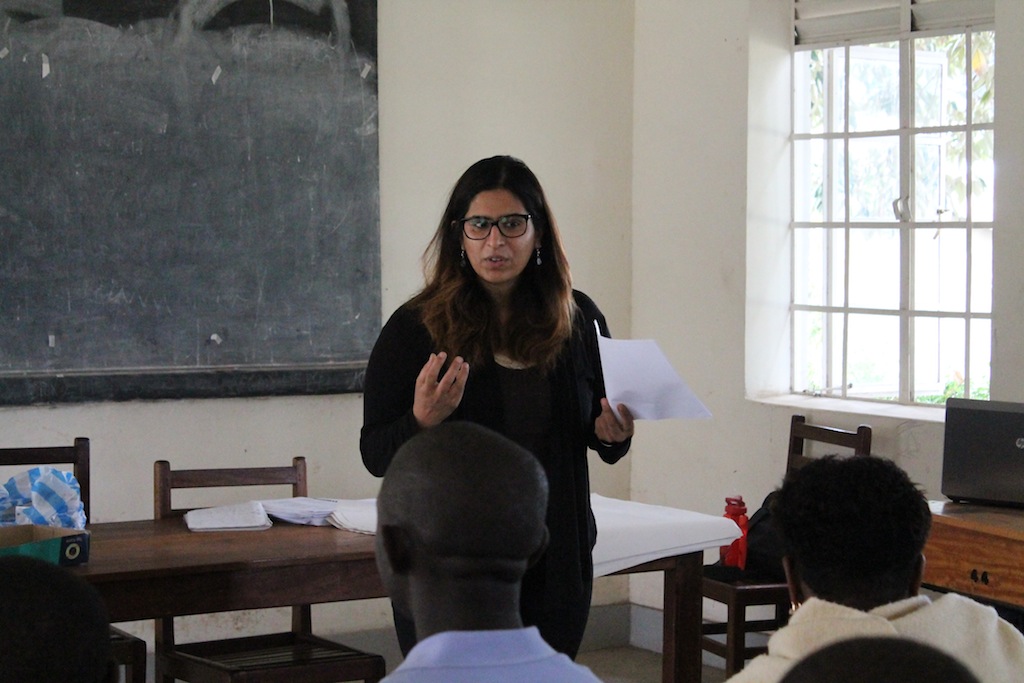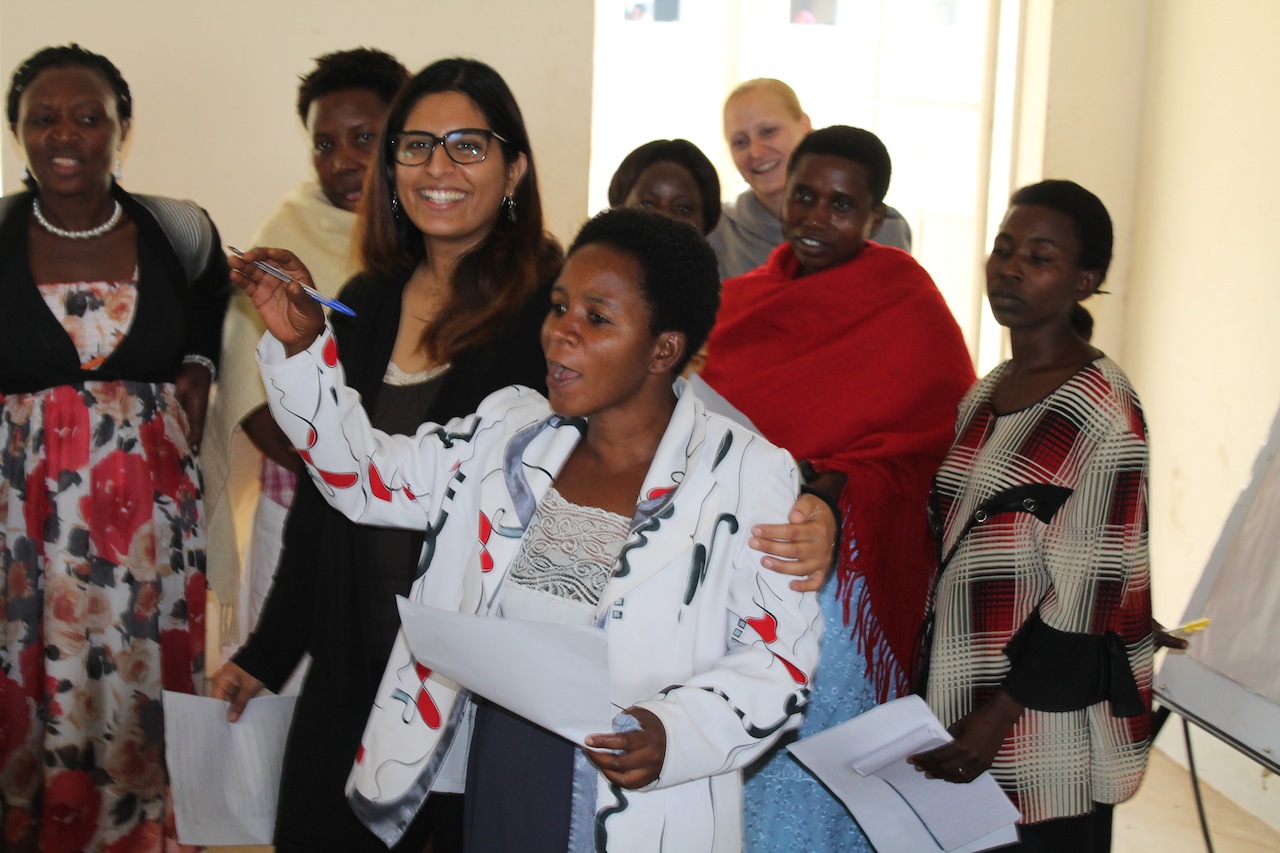When settling into a new country, one must go through a process, if you may, in order to adapt to his or her new surroundings. Moves aren’t easy, but as humans we’re wired to acclimate to our surroundings for survival.
It’s been two months since I started my fellowship here in Uganda, and it’s been quite the journey. I’ve been faced with some difficulties and hard times, but having three other co-fellows by my side makes things much easier.
I work as a Communications Fellow for Action for Community Development (ACODEV), right at the equator in Kasese, Uganda. We run a number of programs that focus on the empowerment of the local population, in terms of human rights, reproductive and sexual health and HIV/AIDS. ACODEV was formed out of the deep conviction that health is a human right; a belief that is synonymous to mine.
When the fellows and I arrived at our placement, we were whisked away to Bwera, a sub-county of Kasese to take part in ACODEV’s Leadership Development Program. This program was developed by ACODEV to increase accountability among health center nurses and village health workers through development of their leadership skills. The subject for this term’s training was “Adolescent Sexual and Reproductive Health.” My supervisor and each of the fellows took turns teaching healthcare workers about rights of the adolescent, myths surrounding sexual and reproductive health of the adolescent and much more.
Then came my turn. My part of the assignment involved communication methods with adolescents and an in-class exercise titled “Value Clarification System.”

After finishing my lecture on communication techniques, I began the exercise, which required all the members to participate. The exercise was simple, I was to read a statement and the class was to either agree or disagree and then launch into a healthy debate. To facilitate the exercise, I had a co-fellow on each side of myself to represent whether they agreed or disagreed with the statement. I still remember having my doubts about reading some of the statements and I was unsure how vocal the participants would be in sharing their opinions.
I read the first statement out loud, “Men by nature have a greater need to satisfy their sexual desires than do women.”
The class divided and hilarity ensued.
Women went straight to the side where they agreed with the statement. Men went on to disagree. “Let’s discuss why you feel this way,” I said to the women.
One woman spoke up, “The men always wake up with an erection and want to have sex! We can’t say no!” Immediately, the classroom burst into laughter.

One man on the opposite side responded,” Women have just as much of a right to sex as men do! Equal rights!”
After some debate back and forth, we moved on to the next statement.
“Adolescents shouldn’t be given contraceptives because it will encourage sexual activity.”
Again, the class divided. “No, why should they have access? They should abstain from sex,” one said. Others debated that adolescents were still young and wouldn’t understand the implications of sex, such as sexual transmitted diseases and pregnancy.
What was really great about doing this exercise was that when asked the question, the participants were more than willing to respond. But these opinions and values were coming from a deep personal conviction that what each of them was saying was right. Each one of them felt more than justified in their beliefs.
This made me even more hesitant about reading the third statement, but I felt the fellows and I were in a position where we had to ask the tough questions in order to have an impact.
So, I read out loud, “Parents should accept their homosexual son rather than try to re-orient his sexual preference.”
As people moved, I took in what I saw; everyone was standing in solidarity on the “disagree” side.

It was at that instant, my heart dropped. While I held out a little bit of hope that there would be one person who would agree with the statement, it was not the case.
I reflected on the time I worked as a nurse and the many patients I cared for- they were teenagers, adults, gay, straight, holocaust survivors and prisoners. Had I ever been at that point in my life where I let my personal beliefs become a barrier to providing quality care?
Here in Uganda, I was trying to just understand. But in the process of this exercise, I moved on from being a facilitator to challenger. So I asked, “Well, what if the person is a homosexual adolescent and asks you for advice on sexual and reproductive health?” The majority of the class responded they would not provide them with care.
I responded, that as health workers, we’re required to do our job with compassion and love. It’s not our job to judge, no matter where the person is coming from, where they have been and where they are going. A 16-year old is just as much at risk for diseases and disorders just as much as the 35-year old is regardless of their sexual orientation. As health workers, we needed to hold the utmost compassion for those who come to us in need of advice and care.
The class stood silent. And then, one nurse spoke up in the Lukonzo language. She said she didn’t agree with homosexuality, but she would still provide the person with care. To me, that was hopeful.
After the exercise, I understood immediately that challenging values was not what I came here for, but it was indeed part of the process. I came here to be a catalyst for positive change and equity in healthcare and society.
As a Communications Fellow, I came here to be a voice for healthcare equality and let others know that health is indeed a human right. Regardless of gender, sex, class, or sexual orientation, everyone was entitled to resources that helped toward the betterment of their own and their family’s healthcare.
I understand that these thoughts and values are my own. And while they may coincide or clash with the values of others, it will indeed take time to penetrate into the minds and hearts of people. It could take days, months and years. Doing this exercise with healthcare workers also gave way to an enlightening epiphany. Things get better with time.
And things here will change too, but not without a dialogue that poses a challenge.
